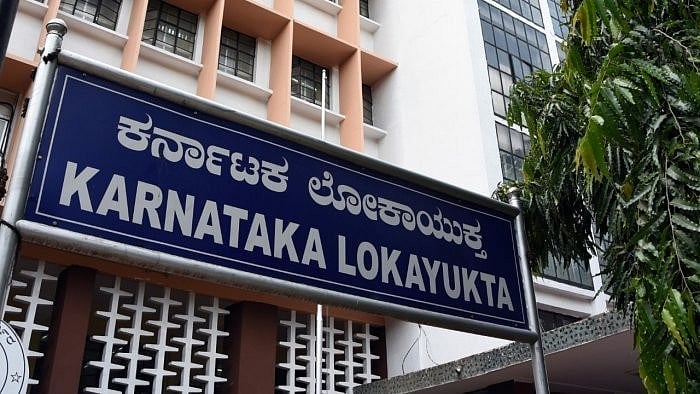
Karnataka Lokayukta.
Credit: DH Photo
The very foundation of justice and good governance rests on the integrity of institutions designed to uphold them. In a democracy, bodies like the Lokayukta are bulwarks against corruption, serving as the last resort for citizens seeking redress for official malfeasance. But what happens when the watchdog turns predator? Recent revelations from
Karnataka’s Lokayukta expose a chilling paradox: the institution tasked with curbing corruption is itself mired in it. The case involving Lokayukta Superintendent of Police (SP) Srinath Joshi, since transferred, and former constable Ningappa Sawant exemplifies this rot. Sawant, allegedly with Joshi’s connivance, extorted money from bureaucrats by threatening them with fabricated cases.
Investigations have tracked nearly Rs 5 crore moved through 13 cryptocurrency wallets, pointing to a calculated attempt to launder bribes. Worse still is Ningappa’s revelation that he organised a meeting between a minister and Joshi concerning transfers and other deals, fuelling speculation of a political link to the controversy.
Furthermore, the Lokayukta has written to the Chief Secretary, stating that there is prima facie evidence about the involvement of Joshi and has sought action against him.
The High Court’s stay on the notice to the SP highlights the state’s perennial failure to build watertight cases, a recurring flaw that continuously undermines justice. This is not an isolated aberration.
In 2015, then Lokayukta Y Bhaskar Rao’s son was implicated in running an extortion racket from within the same institution. The present scandal bears alarming similarities. Such recurring episodes suggest a disturbing pattern where the Lokayukta’s sanctity is violated.
The fight against corruption is thus reduced to a farce. The government’s rejection of the Lokayukta’s request for an internal vigilance wing fuels suspicion that it prefers a compromised watchdog over an empowered one.
The implications of this institutional decay are dire. When the guardian of public trust becomes the violator, the very idea of accountability collapses.
Citizens are left disillusioned, and the anti-corruption wing’s credibility lies in tatters. To restore faith, strong and swift action is imperative. Given the quasi-judicial nature of the Lokayukta, the High Court should step in and place the investigation under its direct supervision to ensure impartiality and expediency.
Only swift and exemplary punishment can restore public faith. The question, “Who will cop the cop?” is no longer rhetorical. It is a desperate cry from a betrayed public. If the fence continues to devour the crop, governance will itself perish, and with it the hope of justice.
